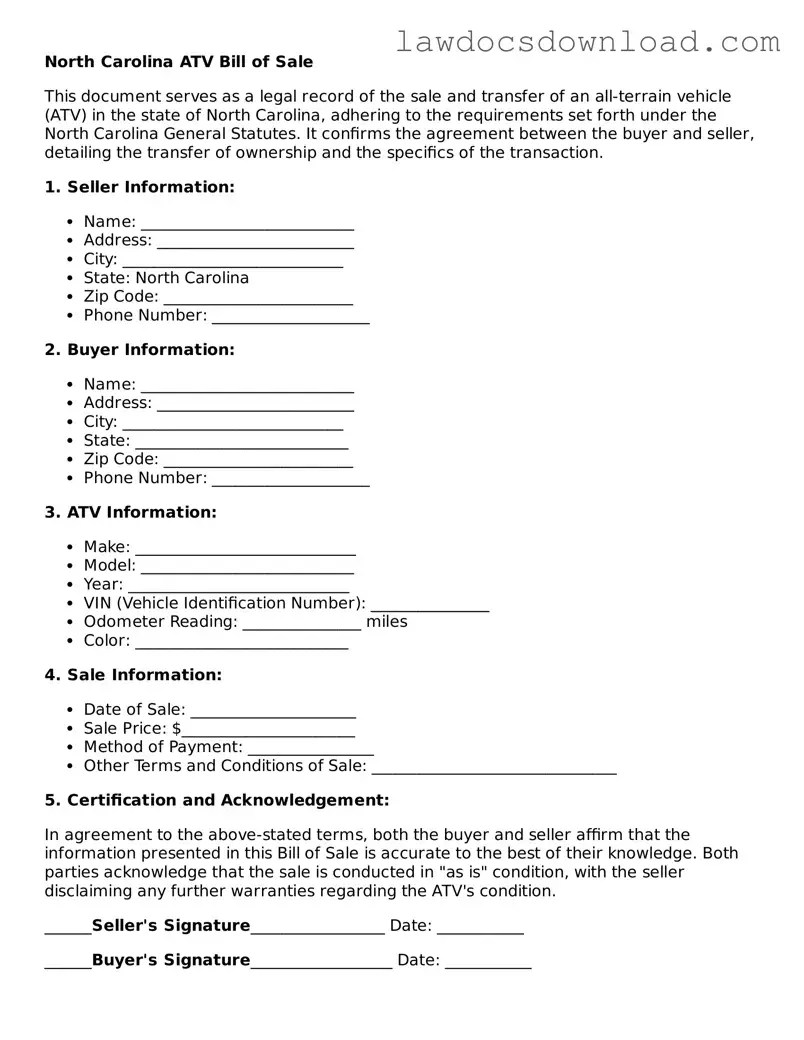North Carolina ATV Bill of Sale
This document serves as a legal record of the sale and transfer of an all-terrain vehicle (ATV) in the state of North Carolina, adhering to the requirements set forth under the North Carolina General Statutes. It confirms the agreement between the buyer and seller, detailing the transfer of ownership and the specifics of the transaction.
1. Seller Information:
- Name: ___________________________
- Address: _________________________
- City: ____________________________
- State: North Carolina
- Zip Code: ________________________
- Phone Number: ____________________
2. Buyer Information:
- Name: ___________________________
- Address: _________________________
- City: ____________________________
- State: ___________________________
- Zip Code: ________________________
- Phone Number: ____________________
3. ATV Information:
- Make: ____________________________
- Model: ___________________________
- Year: ____________________________
- VIN (Vehicle Identification Number): _______________
- Odometer Reading: _______________ miles
- Color: ___________________________
4. Sale Information:
- Date of Sale: _____________________
- Sale Price: $______________________
- Method of Payment: ________________
- Other Terms and Conditions of Sale: _______________________________
5. Certification and Acknowledgement:
In agreement to the above-stated terms, both the buyer and seller affirm that the information presented in this Bill of Sale is accurate to the best of their knowledge. Both parties acknowledge that the sale is conducted in "as is" condition, with the seller disclaiming any further warranties regarding the ATV's condition.
______Seller's Signature_________________ Date: ___________
______Buyer's Signature__________________ Date: ___________
This document is not complete without the acknowledgment of a notary public to ensure the authenticity of the signatures of the buyer and seller.
Notary Public Acknowledgement:
State of North Carolina
County of _______________
On the ____ day of __________, 20____, before me, a notary public in and for said state, personally appeared ______________________ and ______________________, known to me (or satisfactorily proven) to be the persons whose names are subscribed to the within instrument and acknowledged that they executed the same for the purposes therein contained.
In witness whereof, I hereunto set my hand and official seal.
______________________________________
Notary Public
My Commission Expires: ________________

